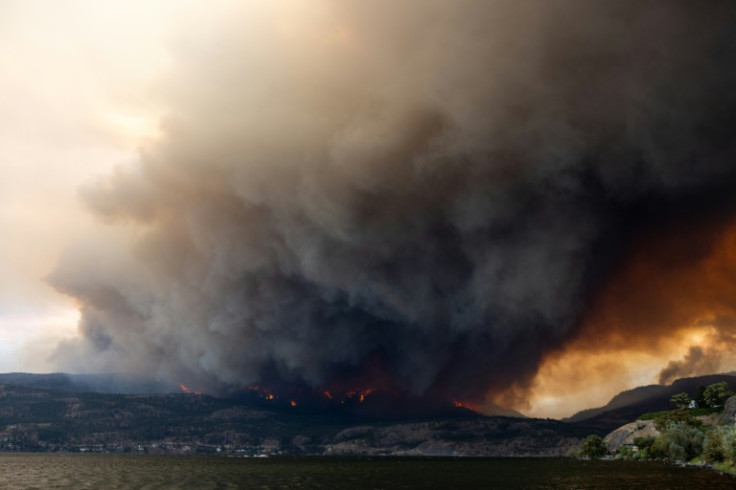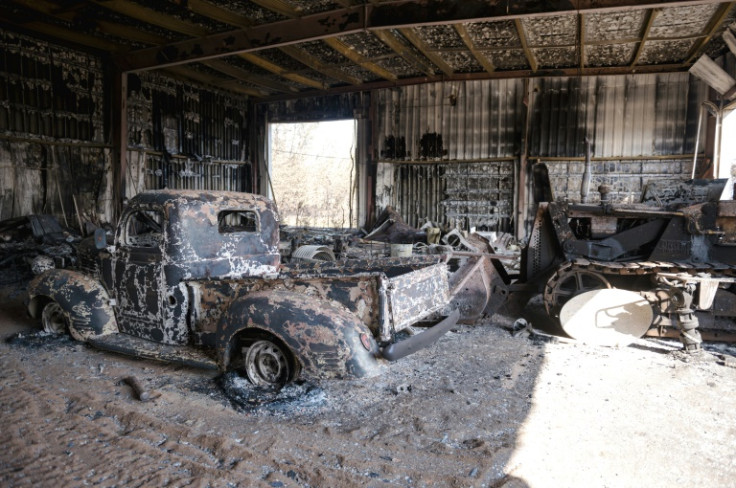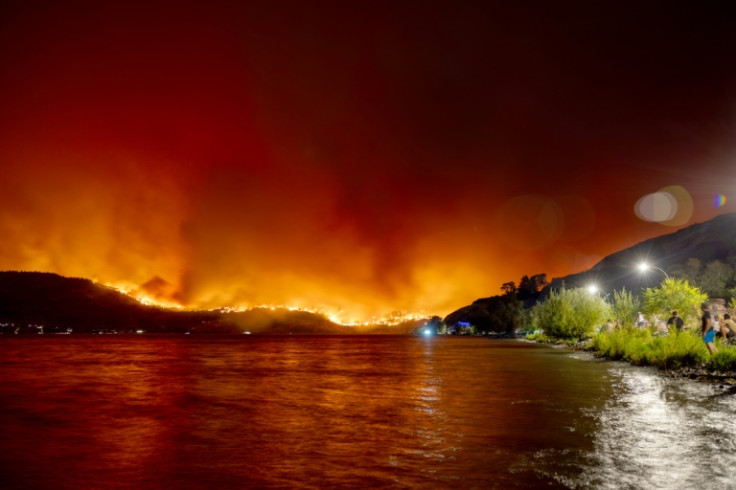Milder weather brings relief from 'apocalyptic' Canada wildfires
Cooling weather on Monday gave firefighters for the first time in days the upper hand against what the prime minister described as "apocalyptic" wildfires blazing across western Canada.

Cooling weather on Monday gave firefighters for the first time in days the upper hand against what the prime minister described as "apocalyptic" wildfires blazing across western Canada, after tens of thousands of people were evacuated or put on alert.
Large parts of the scenic Okanagan Valley, including the towns of Kelowna and neighboring West Kelowna in British Columbia, are threatened by fires.
About 27,000 people in the province where 385 fires are now burning -- out of almost 1,040 nationwide -- remain under evacuation orders, down from Sunday.
Provincial emergencies minister Bowinn Ma said the situation "continues to be extremely serious," but fire officials told a news conference the weather was now on their side.
"I'm pleased to say that yesterday was another good day and we continue to see progress made on these wildfires," Kelowna city councillor Loyal Wooldridge said, pointing to no new structures lost in the last 24 hours.

"We're not expecting any rapid increases in fire behaviour or spread of any of these fires," added senior fire official Jerrad Schroeder.
Temperatures in the major wine-producing region around Kelowna were expected to stay cool through Monday, creeping into the low 20s Celsius (68 Fahrenheit) in the afternoon.
There was also some rain forecast starting Tuesday, and hundreds of reinforcements from Mexico and South Africa coming this week to help beat back the flames.
"These last few days have been the most difficult days fighting wildfires in B.C.'s history," British Columbia forestry minister Bruce Ralston said.
"With cooler temperatures, some rain and less wind in the forecast, we remain hopeful," he said.
Officials said it was too soon, however, to start planning a return of evacuees as thick smoke continued to choke the area.

The region is also littered with debris, including trees ripped out of the ground by powerful winds, and downed power lines. Several houses have been reduced to rubble and street signs have melted in the heat.
Prime Minister Justin Trudeau, speaking at a cabinet retreat in Charlottetown, Prince Edward Island, to discuss the national fire crisis, said Canadians "are watching in horror the images of apocalyptic devastation."
"It's a scary and heartbreaking time," he said as "people flee for their lives and worry about their communities."
This summer in Canada, more than 14 million hectares (34.6 million acres) have burned -- roughly the size of Greece and almost twice the area of the last record of 7.3 million hectares. Four people have died.
Scientists say human-caused global warming is exacerbating natural hazards, making them both more frequent and more deadly.
Kelowna, a town of 150,000, has become the latest population center hit.
"It has been horrible to spend the week with this air. It is horrible to breathe," Mary Hicks, a 29-year-old IT worker who had been visiting the region from Montreal, told AFP on Sunday. "I really want to go home."

But she was stuck for now, with her return flight canceled. The airport hopes to resume flights this week, depending on visibility.
"When I had to pack, in the moment I was crying, crying, crying," said April, 39, who with her two small children fled her home east of Kelowna and was staying in a hotel outside the city.
On the other side of Okanagan Lake, at least 50 homes on the outskirts of West Kelowna have been destroyed. The count is expected to rise as crews assessing damage push deeper "into areas where the fires burned hottest," said local fire chief Jason Brolund.
Bogi Bagosi, a 16-year-old student, told AFP: "My sister's boyfriend's house has burnt down. He lives in the West Kelowna side and it was so windy that the fire was spreading and they couldn't control it."
The confusion and terror of the fires and evacuations have been compounded by Meta's blocking of Canadian news on Facebook and Instagram, in response to a new law requiring digital giants to pay publishers for articles.
"It is inconceivable that a company like Facebook is choosing to put corporate profits ahead of (safety)... and keeping Canadians informed about things like wildfires," Trudeau raged on Monday.
In Canada's far north, crews held back a massive fire threatening Yellowknife, the capital of the Northwest Territories. They were helped by some rain over the weekend.
Defense Minister Bill Blair said the situation in the Northwest Territories "remains quite concerning," but was "beginning to stabilize."
© Copyright AFP 2025. All rights reserved.





















